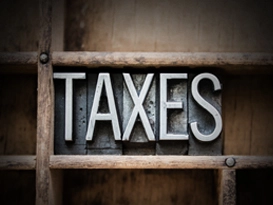The State of Jammu and Kashmir always occupies a special status in the Constitution. For, Article 370 provides that the Constitution will apply to State of Jammu and Kashmir as it is notified with adaptations by the President of India. These adaptations are for historical reasons but the outcome in constitutional terms is significant. Let me give you certain reasons which existed prior to GST for a contrast. For an eg., Schedule VII of the Constitution does not apply in its entirety to State of Jammu and Kashmir. To compare we have three Lists in Schedule VII: List I Union List, List II State List and List III which is Concurrent List for the rest of the country. For State of Jammu and Kashmir there is no concept of List II. Further the residuary powers do not vest in the Parliament in the State of Jammu and Kashmir. Instead in the State of Jammu and Kashmir the residuary powers are with the State of Jammu and Kashmir itself. This is a very significant departure for the constitutional scheme because this typically means that whatever subjects have not been enumerated in List I or List III, cannot be enacted by the Parliament. They can be enacted only by the State of Jammu and Kashmir.
Let me give you one particular illustration which may clarify this aspect. Service tax was not originally mentioned in the Constitution. So, when in 1994, for the first time the government imposed service tax, it had to take refuge under the residuary powers. Service tax was justified by the Supreme Court under Entry 97 of List I as within the residuary powers of the Parliament. However, as I mentioned residuary powers do not extend to State of Jammu and Kashmir. Therefore while service tax for the rest of the country was imposed by the Parliament for State of Jammu and Kashmir, the service tax was levied by the State itself. This is the significant departure which has been continued even under GST. Therefore, it is important to take position of State of Jammu and Kashmir. This position emerges from 2017 Constitutional Order which has been promulgated by the President. That Constitutional Order, modifies the Constitutional Amendment for GST insofar as it applies to the State of Jammu and Kashmir. Let me give you an illustration. There is Article 279-A which relates to GST Council. There are 11 clauses in this article. But these 11 clauses become 13 clauses when it comes to State of Jammu and Kashmir. There are 2 additional clauses namely Clause 12 and Clause 13 which essentially provide that no decision of the GST Council can extend to State of Jammu and Kashmir, if it impedes in the sovereignty of the State or it is a decision against the interest of the State unless accepted by the State itself. So there are wide changes. There is another wide change. For eg. Entry 52 has been omitted from List II which means that States cannot impose entry tax. However as I pointed out, the List II itself does not extend to State of Jammu and Kashmir. Technically, it means State of Jammu and Kashmir is constitutionally competent to impose entry taxes. There is a wide variety of changes and for each of the change, one is required to traverse through the Constitutional Amendment and also the 2017 Constitutional Order which applies this amendment to State of Jammu and Kashmir. The answer lies in the detail but the impact is significant.

